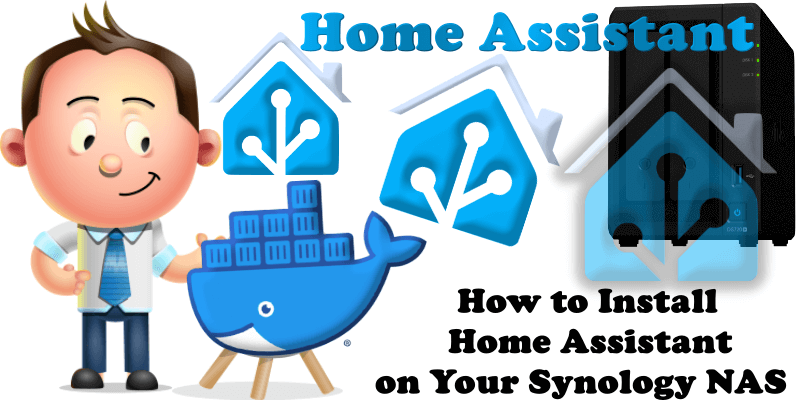
Home Assistant is a free and open-source home automation software written in Python with a focus on local-control and privacy. It has a very wide range of device support, and, as of October 2023, it features support for over 3000 modular plugins or add-ons with system integrations to different IoT technologies; systems and services are available as “integration components”. Actions, such as switching ON/OFF lights, are triggered by automation, voice commands, mobile apps, or controls on the Home Assistant web-based front-end user-interface. In this step by step guide I will show you how to install Home Assistant on your Synology NAS using Docker. You can also use HOOBS or Homebridge for your smart home devices.
STEP 1
Please Support My work by Making a Donation.
STEP 2
Install Container Manager via Synology “Package Center”. If you run an older DSM version (under 7.2), search for Docker instead of Container Manager.
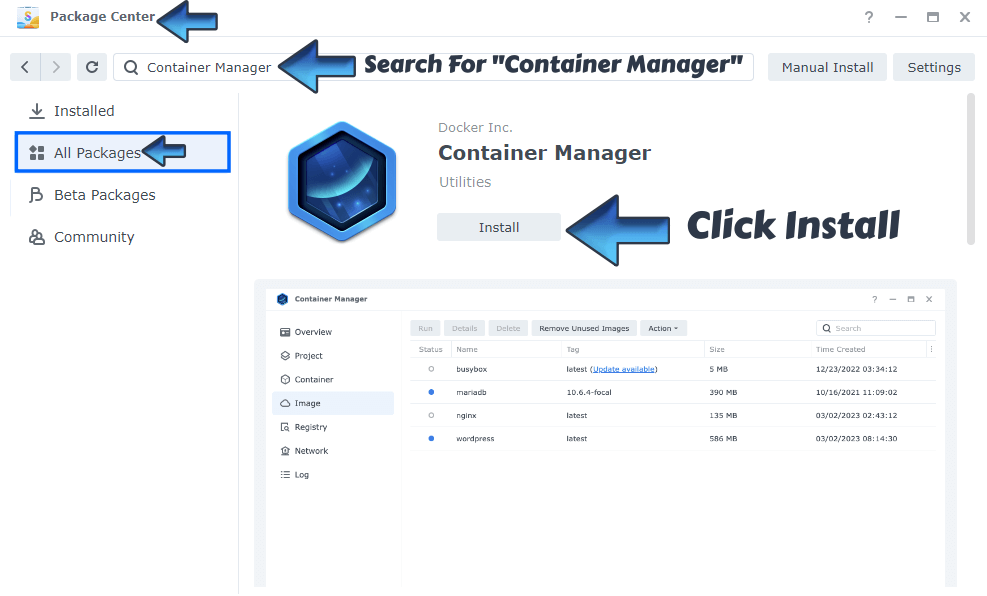
STEP 3
Go to File Station and open the docker folder. Inside the docker folder, create one new folder and name it homeassistant. Follow the instructions in the image below.
Note: Be careful to enter only lowercase, not uppercase letters.
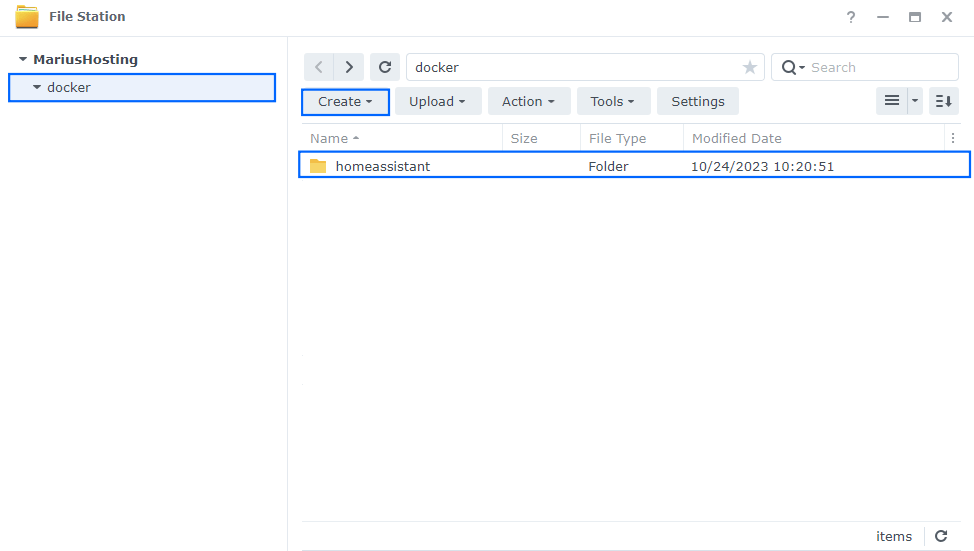
STEP 4
Go to Control Panel / Task Scheduler / Create / Scheduled Task / User-defined script. Follow the instructions in the images below.
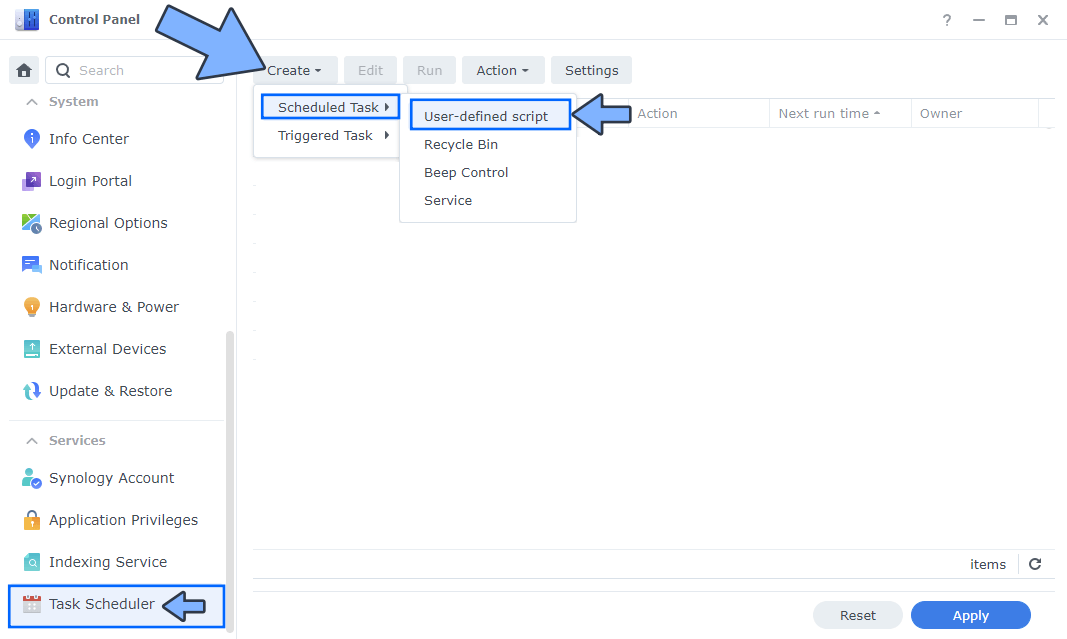
STEP 5
Once you click on User-defined script a new window will open. Follow the instructions below:
- General: In the Task field type in Install Home Assistant. Uncheck “Enabled” option. Select root User.
- Schedule: Select Run on the following date then select “Do not repeat“.
- Task Settings: Check “Send run details by email“, add your email then copy paste the code below in the Run command area. After that click OK.
docker run -d --name=home_assistant \
-e TZ=Europe/Bucharest \
-v /volume1/docker/homeassistant:/config \
--net=host \
--restart always \
homeassistant/home-assistantNote: Before you paste the code above in the Run command area below, change the value for TZ (Select your current Time Zone from this list).
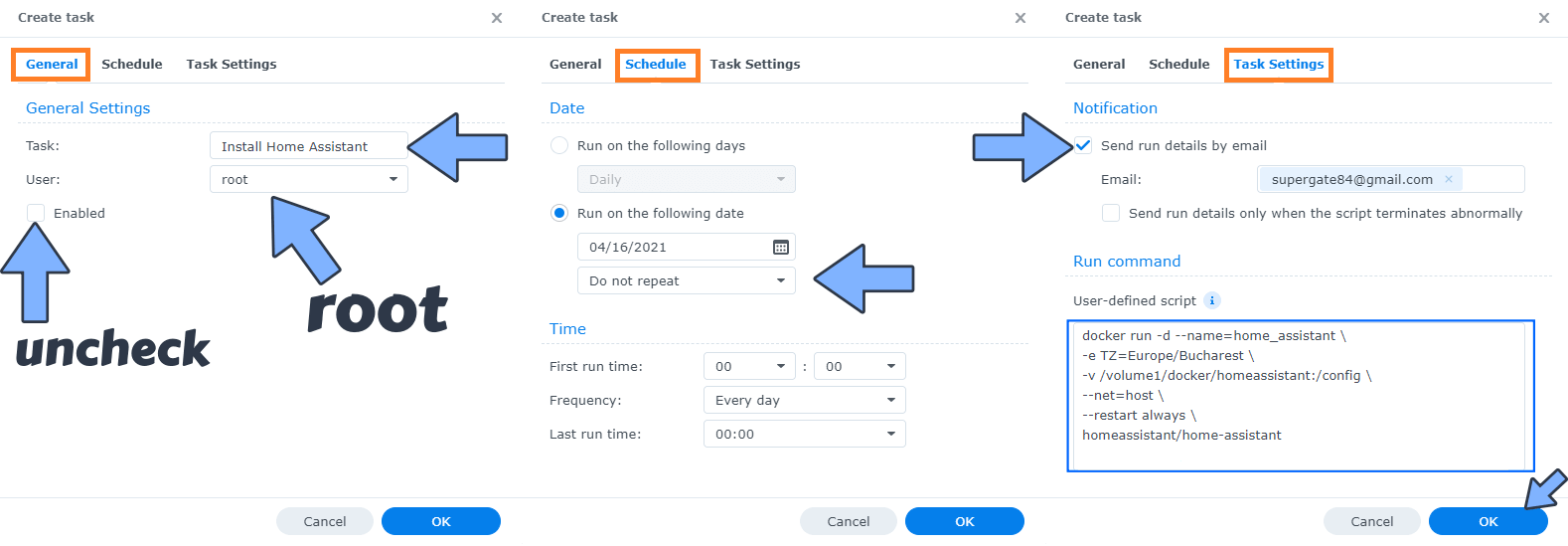
STEP 6
After you click OK on STEP 5 a new warning pop up window will open. Click OK.
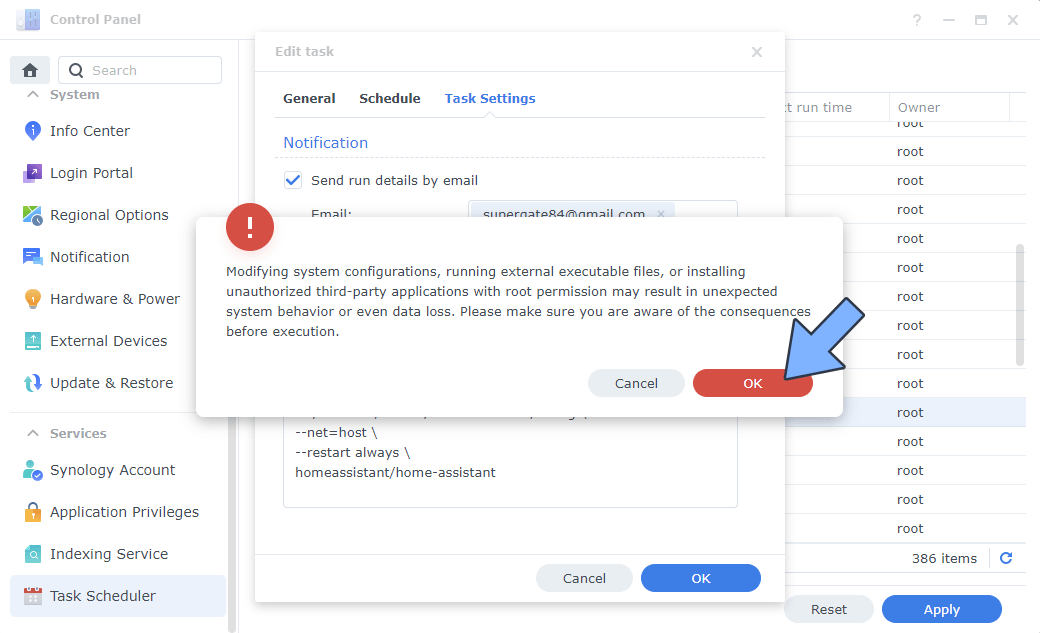
After you click OK, type in your DSM Password then click Submit. Follow the instructions in the image below.
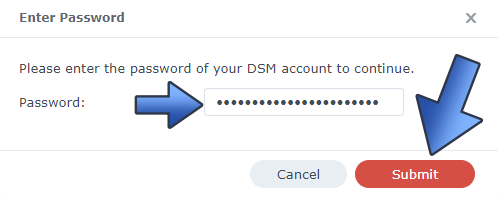
STEP 7
After you click Submit on STEP 6, select your “Install Home Assistant” Task then click the “Run” tab. You will be asked to run Install Home Assistant – click OK. Follow the instructions in the image below.
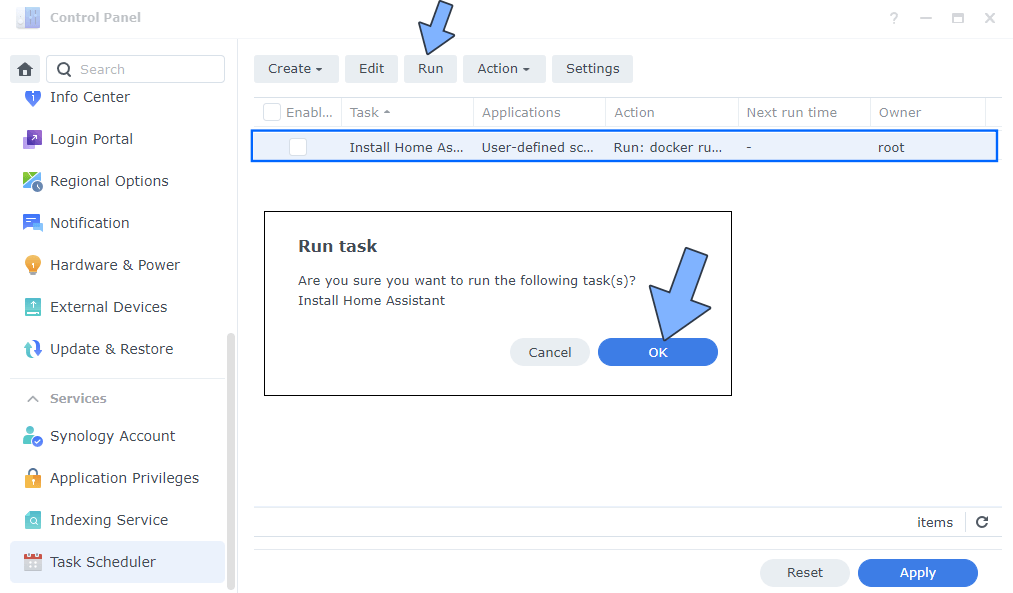
STEP 8
🟢Please Support My work by Making a Donation. Almost 99,9% of the people that install something using my guides forget to support my work, or just ignore STEP 1. I’ve been very honest about this aspect of my work since the beginning: I don’t run any ADS, I don’t require subscriptions, paid or otherwise, I don’t collect IPs, emails, and I don’t have any referral links from Amazon or other merchants. I also don’t have any POP-UPs or COOKIES. I have repeatedly been told over the years how much I have contributed to the community. It’s something I love doing and have been honest about my passion since the beginning. But I also Need The Community to Support me Back to be able to continue doing this work.
STEP 9
The installation process can take up to a few seconds/minutes. It will depend on your Internet speed connection. Now open your browser and type in http://Synology-ip-address:8123 Click CREATE MY SMART HOME. Follow the instructions in the image below.
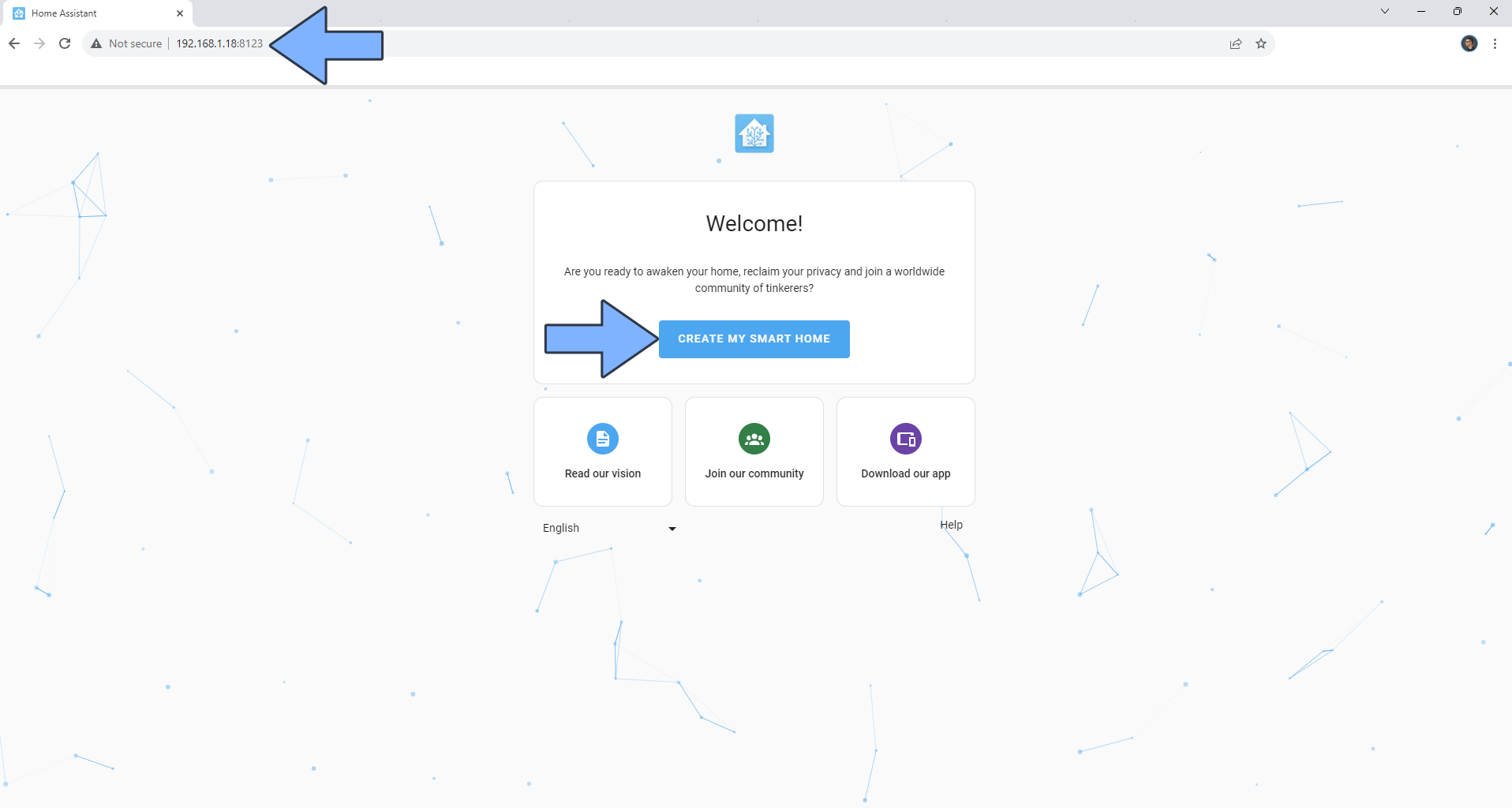
STEP 10
Choose Name, Username, Password and Confirm Password then click CREATE ACCOUNT. Follow the instructions in the image below.
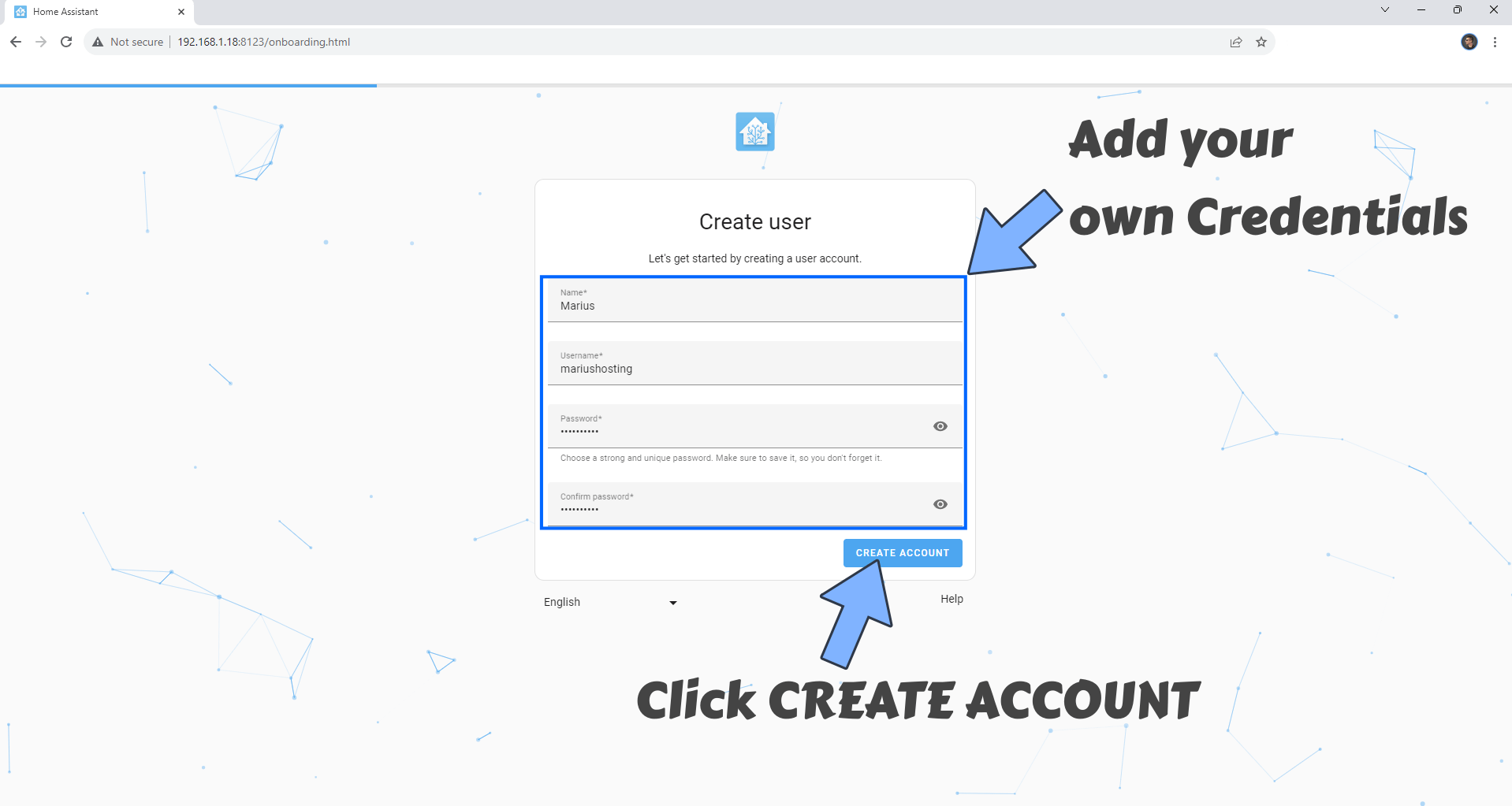
STEP 11
Click the DETECT Location icon. For a more accurate location, move your location point on the MAP. Click NEXT. Follow the instructions in the image below.
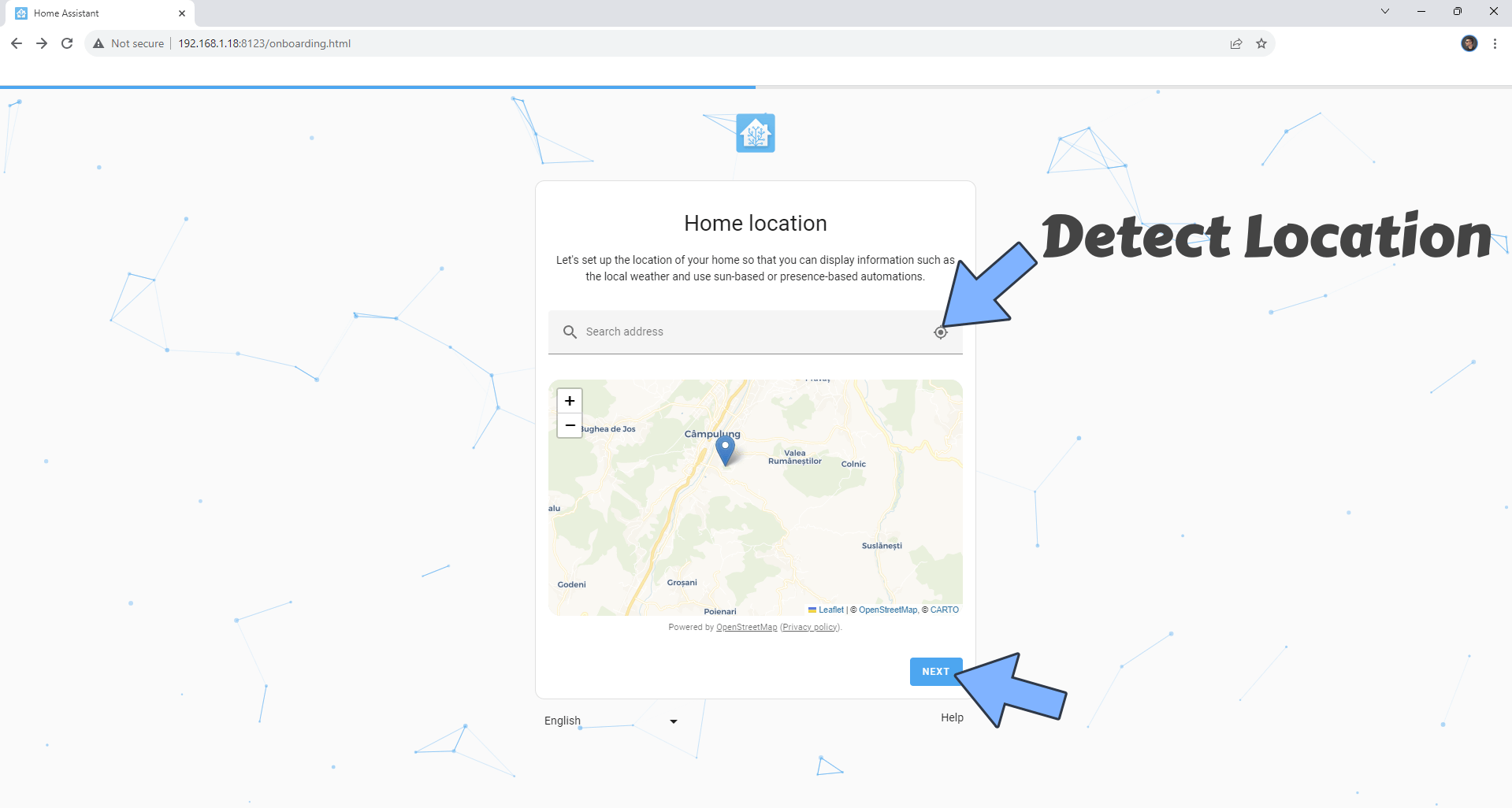
STEP 12
Choose to share or no anonymized information. Click NEXT. Follow the instructions in the image below.
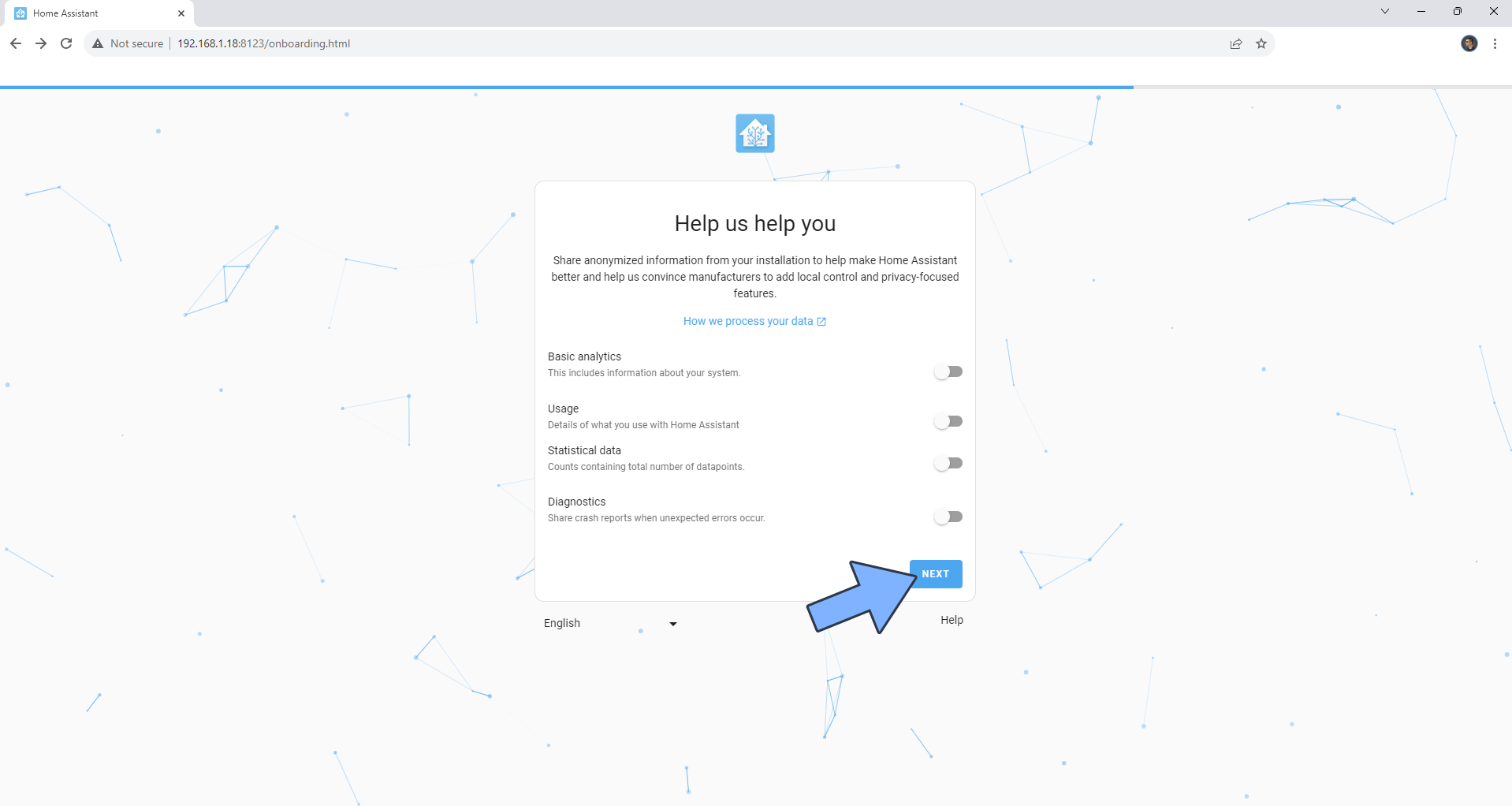
STEP 13
Click FINISH. Follow the instructions in the image below.
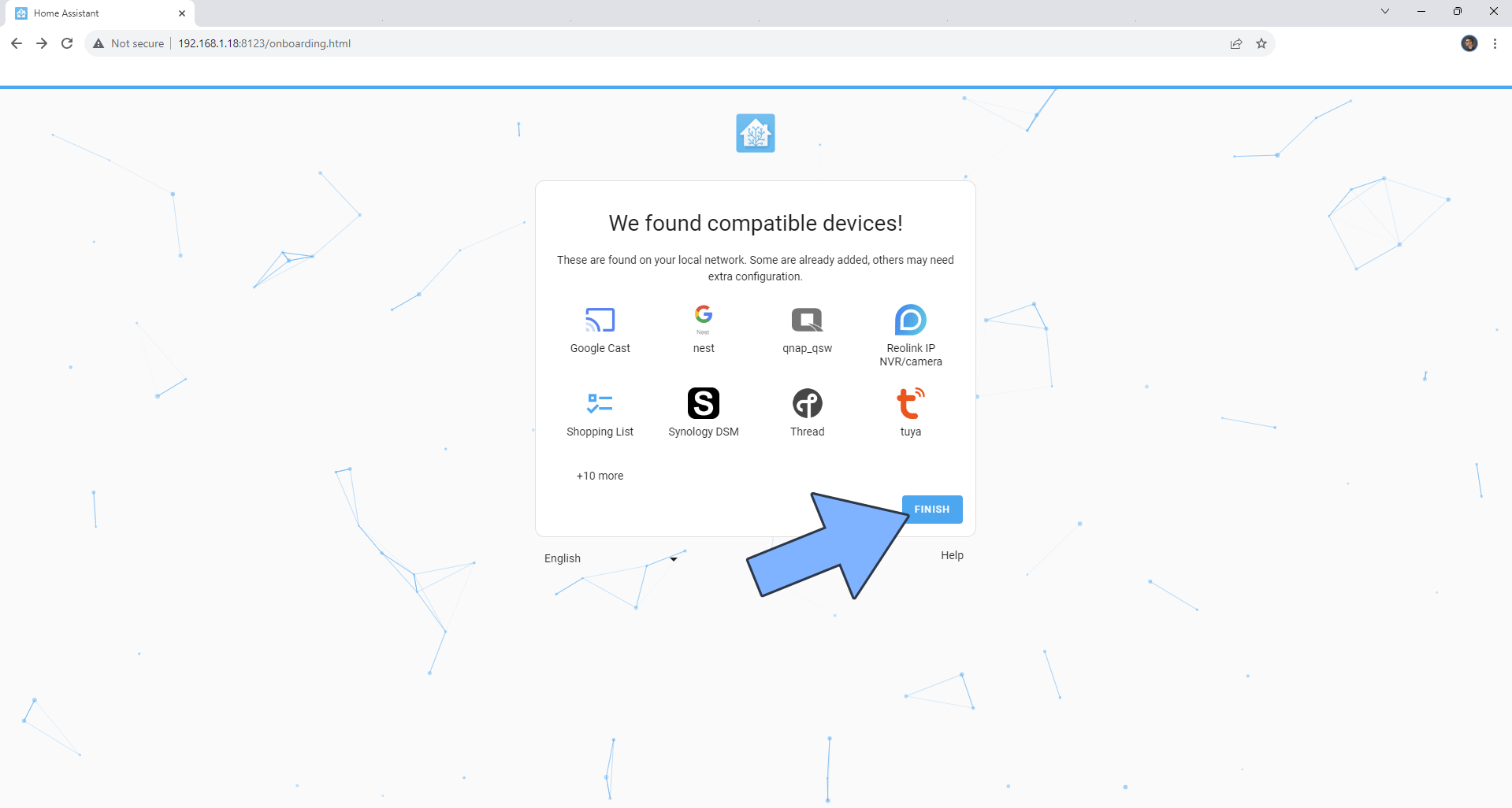
STEP 14
Welcome to your Home Assistant Dashboard!
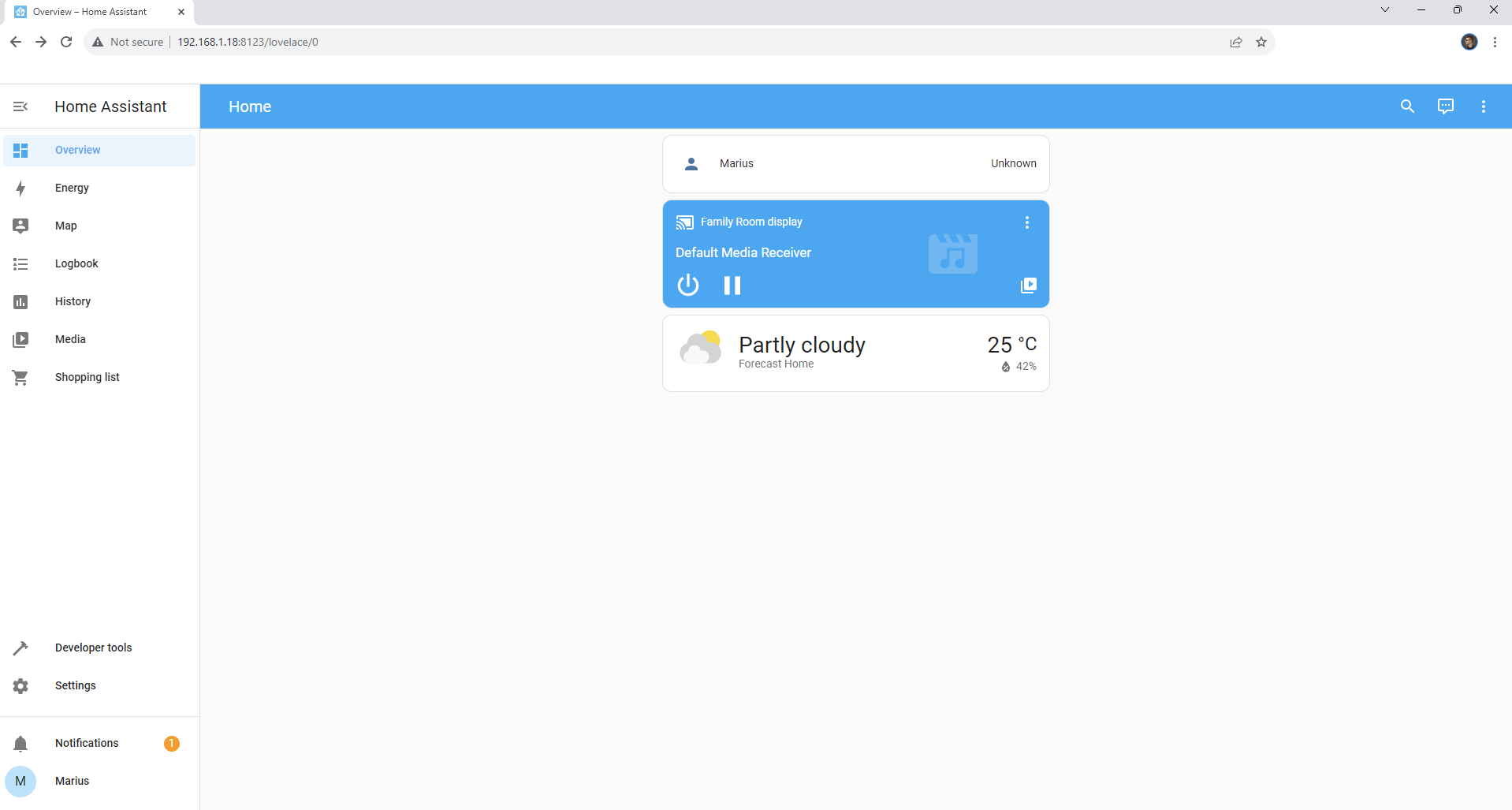
STEP 15
You can also use Dark Mode theme for your Home Assistant Dashboard!
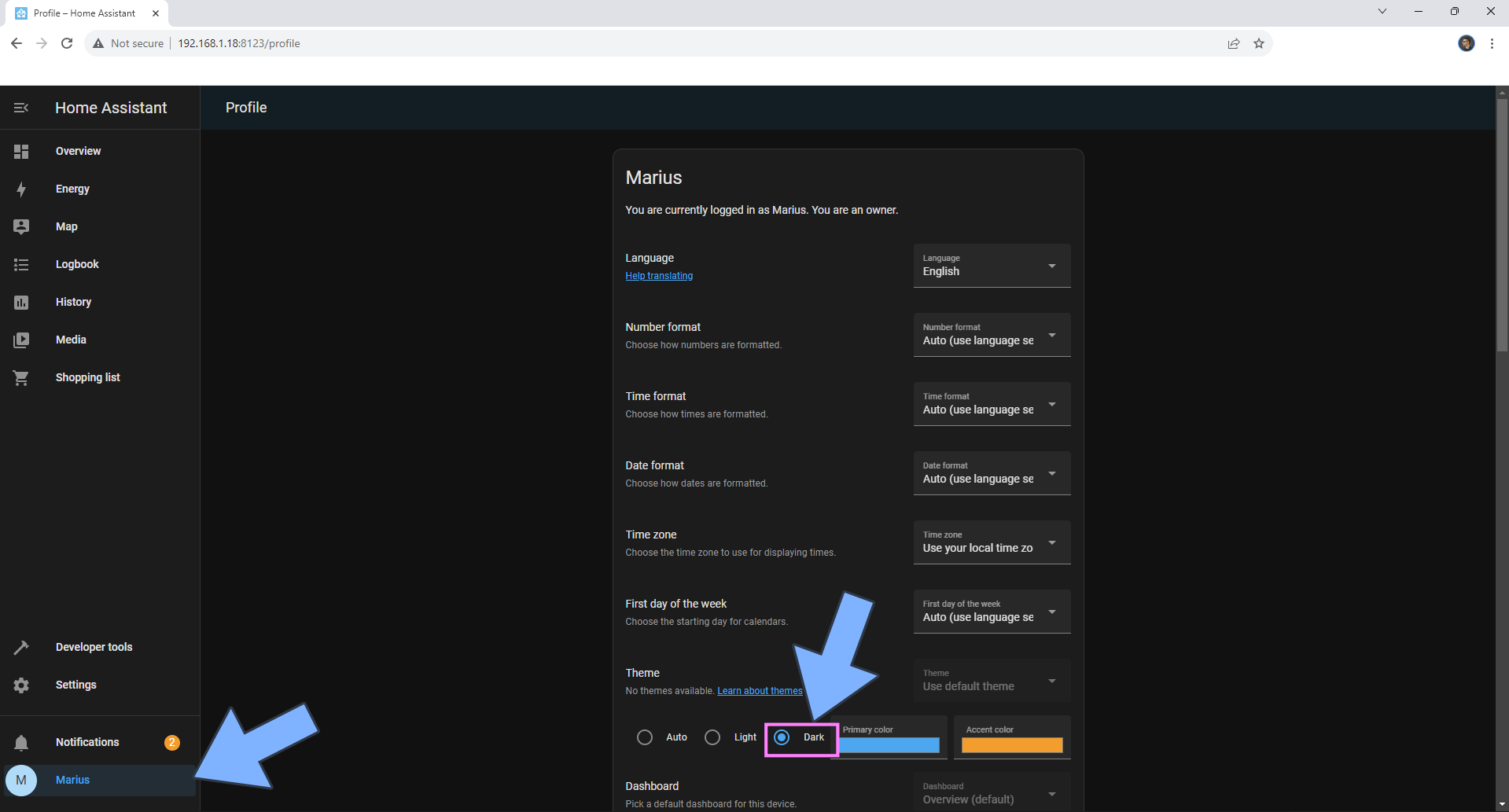
STEP 16
Note: If you want to run the Home Assistant container over HTTPS, check How to Run Docker Containers Over HTTPS. In order to make Home Assistant work via HTTPS, it’s mandatory to activate WebSocket.
STEP 17
Read how to solve 400: Bad Request error.
Note: Add USB Support on DSM 7.
Note: How to Back Up Docker Containers on your Synology NAS.
Note: Hass.io Supervisor is a “bridge” between Home Assistant and the operating system. It allows Home Assistant to do things like ‘get hardware information’, and ‘restart hardware’. Home Assistant is, well, a home assistant. It’s what performs automations, displays the UI etc.
Note: Find out how to update Home Assistant container with the latest image.
Note: Can I run Docker on my Synology NAS? See the supported models.
Note: How to Free Disk Space on Your NAS if You Run Docker.
Note: How to Schedule Start & Stop For Docker Containers.
Note: How to Activate Email Notifications.
Note: How to Add Access Control Profile on Your NAS.
Note: How to Change Docker Containers Restart Policy.
Note: How to Use Docker Containers With VPN.
Note: Convert Docker Run Into Docker Compose.
Note: How to Clean Docker.
Note: How to Clean Docker Automatically.
Note: Best Practices When Using Docker and DDNS.
Note: Some Docker Containers Need WebSocket.
Note: Find out the Best NAS Models For Docker.
Note: Activate Gmail SMTP For Docker Containers.
This post was updated on Tuesday / July 15th, 2025 at 2:56 PM
